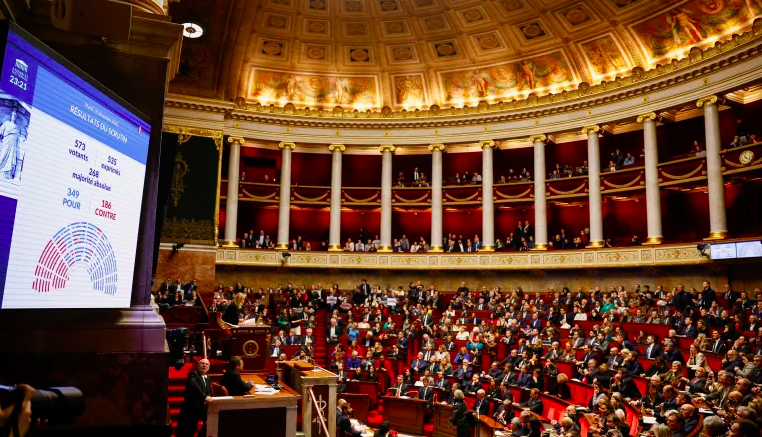French Parliament Passes Toughened Immigration Bill Backed by Macron
The French parliament has approved an immigration bill, backed by President Emmanuel Macron, with a significant majority, following a tumultuous path that saw changes aimed at satisfying the far-right endorsement but provoked internal dissent within Macron’s party.
The legislation, substantially strengthened from its original form, faced opposition from some members within Macron’s Renaissance party, who accused the government of yielding to Marine Le Pen’s far-right National Rally (RN) in order to secure backing.
Interior Minister Gerald Darmanin, a driving force behind the bill, expressed relief as the coalition and conservatives’ votes were sufficient to pass it through parliament, securing 349 votes in favor and 186 against, after the upper house had already approved it.
Darmanin emphasized the necessity of stringent measures, stating that addressing problems across France requires more than just focusing on central Paris.
Previously, the bill faced a major setback as an earlier version was dismissed without discussion in the National Assembly, prompting significant pressure for amendments.
Under pressure from the right, the government amended the bill, easing residency permit rules but delaying access to welfare benefits for migrants, introducing migration quotas, tightening criteria for migrants’ children to gain French citizenship, and proposing the possibility of revoking French nationality for dual nationals convicted of serious crimes against the police.
The RN’s endorsement of the amended bill caused discomfort among left-leaning members of Macron’s party, leading to internal division and resulting in some members voting against the bill or abstaining.
Marine Le Pen claimed an “ideological victory” after the bill’s passing, while dozens of NGOs condemned it as regressive, dubbing it the most adverse legislation for foreigners’ rights and living conditions in the last 40 years.
Critics, including the French Human Rights League and French Communist Party leader Fabien Roussel, characterized the bill as a deviation from the republic’s core values, directly inspired by anti-immigration rhetoric, and a stark regression in the country’s history.
The bill’s approval, despite criticism and internal dissent, solidifies Macron’s efforts to push immigration reform and averts the possibility of shelving the legislation.

